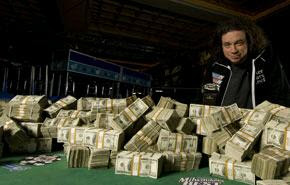Special thanks to Chickencross at the fics chess server who schooled me in B vs N endings:
[Event "ICC 45 45"]
[Site "Internet Chess Club"]
[Date "2009.02.02"]
[Round "-"]
[White "Opponent"]
[Black "Graham"]
[Result "0-1"]
[ICCResult "White resigns"]
[WhiteElo "1741"]
[BlackElo "1702"]
[Opening "Owen defense"]
[ECO "B00"]
[NIC "VO.01"]
[Time "10:59:11"]
[TimeControl "2700+45"]
1. e4 b6
2. d4 Bb7
3. Nc3 e6
4. a3 d5
5. exd5 exd5
6. Nf3 Nf6
7. Bg5 Be7
8. Bb5+ c6
9. Bd3 h6
10. Bh4 Nbd7
11. O-O Nf8?
12. Re1 Ne6?
13. Bf5 Bc8?
14. Ne5 Bd7 (the pawn may be impossible to defend)
15. Nxd7 Qxd7
16. Qe2 O-O? (this will lead to the loss of the c-pawn)
17. Bxe6 fxe6
18. Qxe6+ Qxe6
19. Rxe6 Rae8
20. Rae1 (white should take the pawn while he can) Bd8
21. Bxf6 Rxe6
22. Rxe6 Rxf6
23. Rxf6 Bxf6
24. Ne2 Kf7
25. c3 Ke6
26. g4 Kd6
27. f4 c5
28. Kf2 Bh4+ (I don't want his king getting to g3)
29. Kf3 Kc6
30. f5 Bf6
31. Ke3 Kb5
32. b3 (his advancing his q-side pawns makes them easier to attack. He
probably needs to bring back his king while he still can)
c4
33. a4+ Ka5
34. b4+ Kxa4
35. Nf4 Bg5
36. h4 Bxh4
37. Nxd5 Kb3 (here he is lost, because he cannot hold the c-pawn and prevent
the a-pawn from queening at the same time. If he tries to advance his own
pawn, he will probably lose his knight and the c-pawn.)
38. Ke4 Bd8
39. Ke5 a5
40. bxa5 bxa5
41. Ke6 a4 42. Kf7 a3
43. Nb4 {White resigns} 0-1




